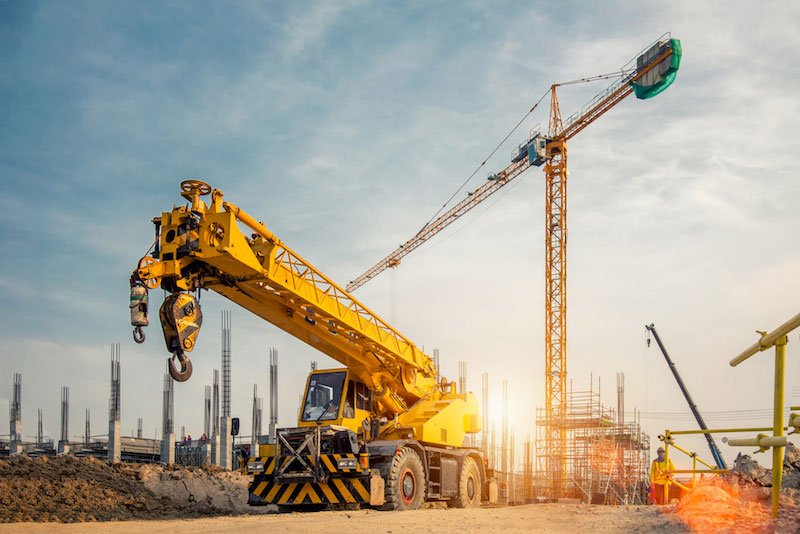Heavy Equipment Rental: High-Quality Machinery for Lease
Wiki Article
Leasing Vs. Buying Construction Equipment: Making the Right Option for Your Task
When starting a construction project, one of the critical decisions that predict stakeholders and supervisors face is whether to lease or get building and construction devices. Both choices have their benefits and downsides, making the selection a crucial one in the job planning procedure. The decision rests on numerous elements such as expense considerations, project duration, equipment maintenance, risk, scalability, and versatility monitoring. Each aspect plays an important duty in identifying the most suitable course for the job's devices needs. construction equipment rentals. Allow's check out these factors further to understand just how they affect the decision-making procedure and ultimately the success of the project.Price Considerations
Leasing equipment frequently needs lower preliminary settlements compared to acquiring, making it an appealing alternative for short-term jobs or specialists with spending plan restrictions. In the lengthy run, continuously leasing devices can gather greater expenses than buying, especially for extensive jobs.On the various other hand, buying construction devices entails greater upfront costs but can lead to long-lasting financial savings, particularly for lasting jobs or regular individuals. Owning equipment gives versatility, benefit, and the capacity for resale value once the job is completed. Furthermore, having tools enables personalization and experience with particular equipment, possibly enhancing efficiency and efficiency on-site. Inevitably, the decision between getting and renting building equipment rests on the task's period, frequency of use, budget plan factors to consider, and lasting financial goals.
Job Duration

Conversely, for lasting tasks or ongoing building and construction job, buying tools can be the a lot more cost-effective option. Acquiring devices can bring about cost financial savings in the future, particularly if the equipment will be often made use of. Additionally, having equipment supplies a feeling of control over its accessibility and enables personalization to fit certain project needs.

Devices Upkeep
Given the critical function task period plays in figuring out the most economical approach in between buying and renting construction equipment, the emphasis currently shifts in the direction of checking out the necessary aspect of equipment maintenance. On the other hand, having devices needs a proactive technique to maintenance to protect against malfunctions, make certain safety, and expand the tools's lifespan. Eventually, a properly maintained construction tools fleet, whether rented out or had, is crucial for the successful and effective completion of building tasks.Versatility and Scalability
In the world of building and construction equipment administration, the element of flexibility and scalability holds considerable value for task effectiveness and resource application. Deciding to rent out building and construction devices provides a high degree of adaptability as it enables the quick change of devices kinds and quantities based upon the evolving demands of a job. Renting allows contractors to access a large range of specialized tools that may be required for certain tasks without the long-term dedication of ownership. This adaptability is especially helpful for tasks with varying needs or unsure periods (rental company near me).Renting building and construction equipment provides the benefit of easily scaling operations up or down as job needs fluctuate. Professionals can rapidly exchange or add devices to match the task's transforming needs without the restrictions of owning properties that may come to be underutilized or obsolete.
Threat Management
Efficient danger management in building and construction equipment procedures is paramount to guaranteeing job success and mitigating prospective monetary losses. Building tasks inherently include various dangers, such as devices break downs, crashes, and job delays, which can substantially affect the project timeline and budget plan. By carefully considering the risks related to owning or renting building and construction devices, job managers can make enlightened choices to decrease these prospective risks.Renting building devices can provide a degree of danger mitigation by moving the duty of upkeep and repair services to the rental business. This can lower the monetary burden on the task owner in instance of unforeseen tools failures (rental company near me). In addition, renting out offers the flexibility to accessibility specific equipment for certain job stages, decreasing the threat of owning underutilized machinery
On the other hand, owning building equipment provides a feeling of control over its usage and maintenance. Nonetheless, this likewise indicates bearing the complete duty for fixings, upkeep prices, and devaluation, dozer rental enhancing the monetary risks connected with tools possession. Mindful danger analysis and factor to consider of elements such as task duration, tools utilization, and upkeep requirements are important in establishing the most suitable choice for reliable risk monitoring in construction tasks.
Verdict
Finally, when making a decision between acquiring and renting building tools, it is vital to take into consideration expense, project duration, devices upkeep, scalability, danger, and adaptability administration. Each aspect plays a critical role in figuring out the most appropriate alternative for the project handy. By carefully assessing these elements, job supervisors can make an informed decision that lines up with their budget, timeline, and total task objectives.
Report this wiki page